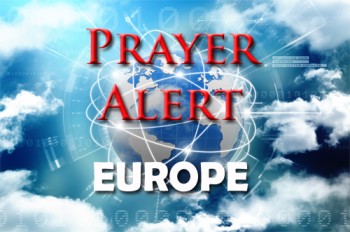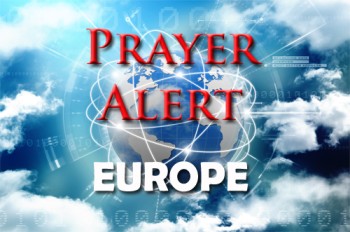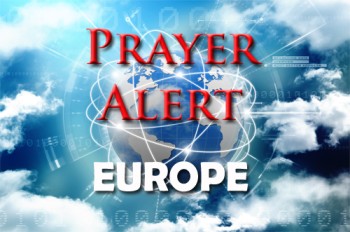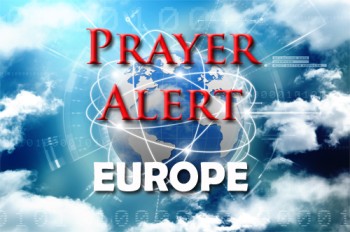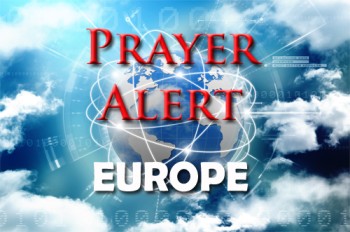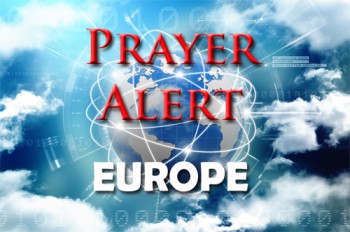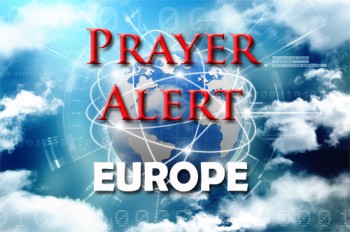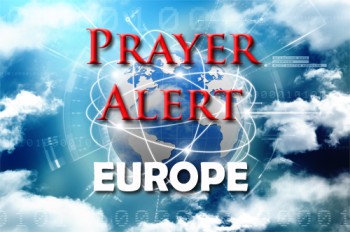Displaying items by tag: France
France: Notre Dame reopens after restoration
Notre Dame Cathedral is set to reopen on 7 December, after a five-year restoration following the devastating 2019 fire. Ceremonies will blend tradition and modernity, including a symbolic door-striking ritual led by Archbishop Laurent Ulrich and a solemn Mass on the Feast of the Immaculate Conception. (8 December). The restored cathedral features a mix of Gothic preservation and contemporary updates, such as a new altar and reliquary, sparking debate but garnering widespread admiration. Restoration efforts exceeded funding goals, totaling €700 million, and Paris anticipates a renewed influx of visitors. Somewhat surprisingly, Donald Trump’ will be there, joining nearly fifty world leaders: security will be tight, with 6,000 personnel deployed. Conspicuously absent, however, is Pope Francis, whose refusal to attend has fuelled speculation about the Vatican’s priorities. As Notre Dame prepares to welcome the faithful once again, its reopening symbolises resilience and the enduring significance of sacred spaces.
France: Pelicot rape trial reaches its conclusion
The landmark trial in Avignon, involving the systematic drugging and rape of Gisèle Pelicot by 49 men orchestrated by her ex-husband Dominique Pelicot, has gripped the nation. The prosecution has sought a twenty-year sentence for Pelicot, who admitted to facilitating the assaults over nearly a decade, and 10-18 years for most co-defendants. The case has sparked national debates on consent, male violence, and systemic legal shortcomings. Prosecutors have highlighted Pelicot’s bravery in waiving her anonymity and allowing graphic evidence to be shown, confronting societal shame surrounding sexual violence. Feminist activists have rallied in support, condemning the accused and demanding justice. Defence lawyers, however, argue that many defendants were misled by Pelicot’s claims of his wife's consent. The trial has renewed calls for legal reforms, and Michel Barnier’s government has pledged new measures to combat violence against women. One commentator said: ‘This trial has affected every one of us. What have we done wrong as a society to produce men who are capable of such inhumane behaviour?’
France: husband admits drugging his wife and allowing others to rape her
Dominique Pélicot, 71, has admitted in court to repeatedly drugging and facilitating the rape of his wife Gisèle for nearly a decade. In a case that has shaken France, he confessed his role in the assaults, which involved fifty men who are also on trial. His wife, who divorced him following his arrest in 2020, has become a symbol of resilience for rape survivors in France for being willing to waive her anonymity in the case, and to appear openly in front of the media. Pélicot's confession is pivotal for the trial’s outcome, as many co-defendants claim they were unaware or manipulated into participating. He has said that childhood sexual abuse and family trauma led him down this path, and expressed regret for his actions. In contrast, Gisèle told the court she felt utterly betrayed after fifty years of marriage. The trial has drawn public attention to the horrors of domestic sexual violence and the importance of justice for victims.
Ukraine: sanctions against Iran for supplying missiles to Russia
France, Germany, and the UK have introduced new sanctions on Iran for supplying ballistic missiles to Russia, which US secretary of state Antony Blinken said will be used against Ukraine. The sanctions include restrictions on Iran Air and travel bans on military officials. UK foreign secretary David Lammy described Iran's actions as ‘a dangerous escalation’. Several individuals and organisations involved in the supply of the missiles face sanctions, and Russian cargo ships transporting these supplies have also been targeted. The Western nations have demanded that Iran halt its missile deliveries, citing security threats to Europe. Blinken and Lammy also flew to Ukraine to ‘hear directly from the leadership’ about their objectives. Volodymyr Zelensky has asked for authorisation to use Western-supplied missiles to strike targets inside Russia - a move the USA has so far resisted. Russia continues to make advances in eastern Ukraine.
France: migrant deaths in small boats ‘a problem of UK’s making’
The ongoing migrant crisis has reshaped France’s northern coast, especially Boulogne. French rescue workers and officials are witnessing a tragic pattern of migrants fleeing death only to perish in dangerous Channel crossings. While both France and the UK condemn smuggling gangs, their responses differ. British authorities emphasise the criminality of smugglers, but French officials and citizens focus on the migrants’ motives, blaming the UK's loosely-regulated job market as a magnet for desperate people. The smugglers continue to adapt, launching boats from inland and resorting to violence. The French feel burdened by a crisis they see as Britain’s responsibility. Despite its significance, the issue gets less media coverage in France due to its own political challenges. Interior minister Gerald Darmanin continues to call for a new treaty between the UK and the EU; efforts against smugglers alone will not suffice to solve the issue.
France: left-wing parties split by call for impeachment
The French left is facing internal divisions once again, this time sparked by Jean-Luc Mélenchon's call to impeach President Emmanuel Macron. Mélenchon and his allies in the France Unbowed movement are pressuring Macron to appoint Lucie Castets as prime minister, threatening impeachment if he refuses. This has highlighted the fragility of the New Popular Front alliance, which includes Socialists, Greens, and Communists, and undermines the unity they displayed in recent snap elections. While the impeachment threat is unlikely to succeed (it requires a two-thirds majority in both houses of parliament), it has exposed significant fractures within the left-wing coalition. All the other parties, including Castets’ supporters, were quick to distance themselves from the idea. This discord is seen as advantageous for Macron's camp, as it weakens the opposition.
Encounters with Jesus in Paris
During the Olympic Games, countless lives were transformed not just by athletic achievements but by encounters with Jesus Christ. Over 2,500 missionaries from various organisations mobilised across the city, leading over a thousand people to faith. YWAM saw 250 commitments to Christ and ministered to over 3,500 people, witnessing numerous miraculous healings. Similarly, Awakening Europe’s 'Unite Paris24' saw 152 conversions, including the remarkable healing of a man with a bullet wound. The efforts extended beyond Paris, with groups like 'Next Move' focusing on southern France, strengthening local Christian community efforts through sports and festivals. Thousands of Bibles and tracts were distributed across the country. Other initiatives included the Paris Praise Festival and Christian art galleries, offering solace and sparking spiritual conversations among visitors. The Olympic Village chaplaincy, where thirty Protestant chaplains served, provided support and a spiritual haven for athletes, many of whom shared their faith after their competitions. Throughout the Games, 24/7 prayer efforts underscored the spiritual impact, with IPC's global prayer networks gifting 835,000 prayers for France to date. See
A gift of a million prayers for France
Love France is an initiative by International Prayer Connect and its partners, including the World Prayer Centre in Birmingham, aiming to bless, celebrate, and connect the worldwide Christian church with the Church across France as it runs various Christian events, outreaches and activities during the games this Summer. The project’s vision includes mobilising global prayer support for France, celebrating positive developments in the church community, and fostering connections through cultural, artistic, and sporting events. Key activities feature the 'France 1 Million' campaign that invites a gift of a million prayers from the worldwide Church for France this summer. A prayer guide and other resources are being published with daily prayer pointers: see An online prayer and discussion platform app will run for the duration of the main and para-games. See Churches are encouraged to get involved with the Eric Liddell 100 Celebrations, honouring the legacy of the famous athlete and missionary.
France: leftist alliance rejects Macron’s calls for coalition after inconclusive election
Emmanuel Macron has urged France's mainstream political forces to form a coalition after the elections resulted in a hung parliament. The New Popular Front, which emerged as the largest bloc with around 190 seats, have demanded that Macron accept their pick for prime minister and allow them to form a government. They insist that respecting the election results is essential for democracy. Any new government - of the left, centre, or a broader coalition - could quickly fall victim to a no-confidence vote from the opposition if it has not secured sufficient support. One commentator has said that it will have to seek to pass laws on a case by case basis, with ad hoc agreements. For more details about how Marine le Pen’s dreams have unravelled - her party unexpectedly came third in the elections - see
France: manoeuvres ahead of second round of elections
Opponents of Marine le Pen’s far-right party National Rally (RN) have intensified efforts to block it from power, with over 200 candidates withdrawing from run-off elections to avoid splitting the anti-RN vote. RN led the first-round vote; the radical left-wing LFI was second, and Macron's centrist group third. Polls give RN between 250 and 300 seats: they need 289 for an outright majority. Macron has said that the top priority is blocking the RN, even if that meant endorsing an LFI candidate, but it was uncertain whether voters would follow that route. Le Pen stated RN would not form a government without a workable majority, hinting at alliances with other parties if needed. The RN would cut funding to the EU, and its anti-migrant policies have been criticised by human rights groups. There are fears that a hung parliament would lead to policy paralysis for the remaining three years of Macron's presidency.
